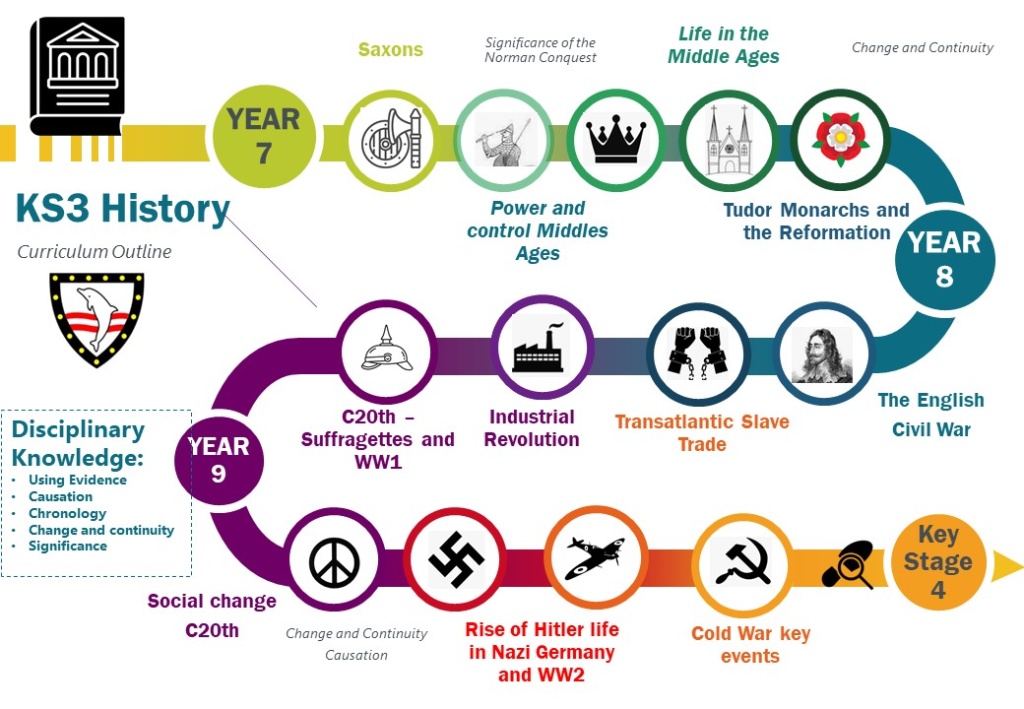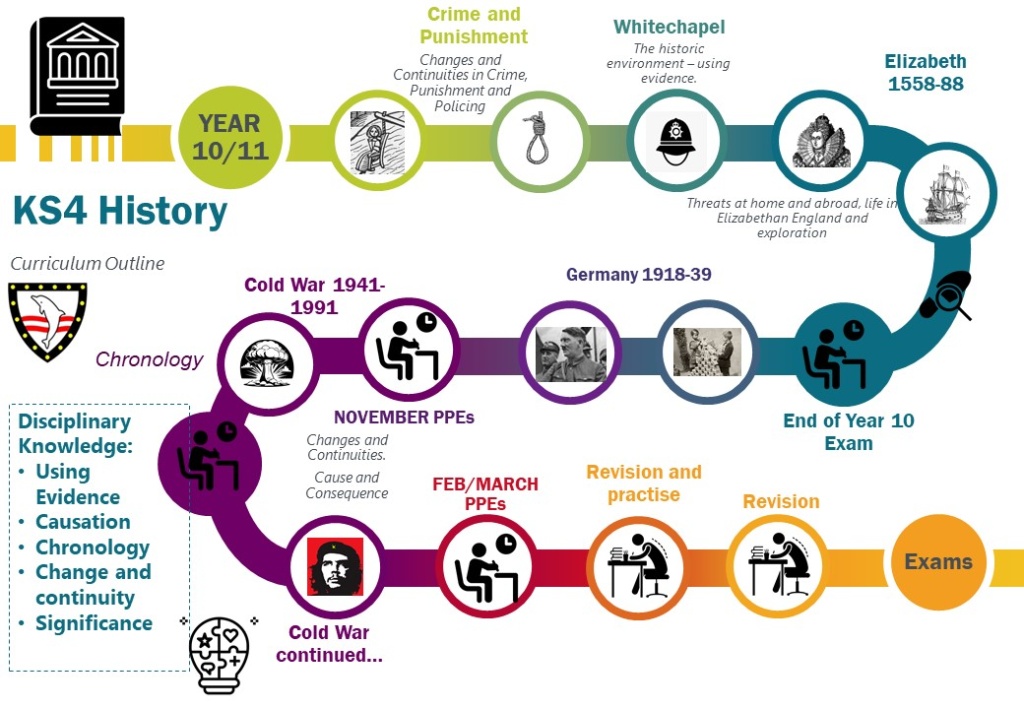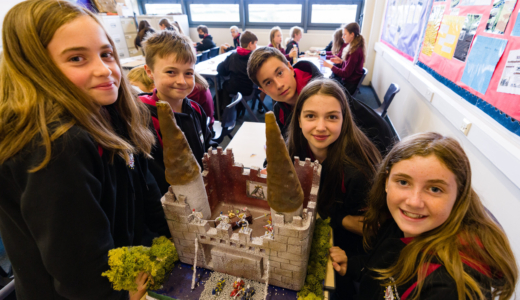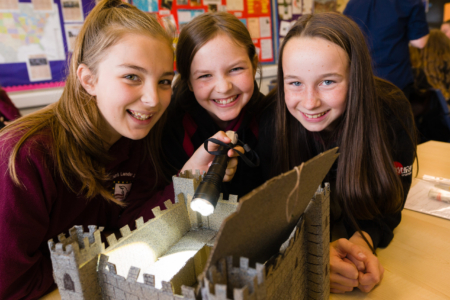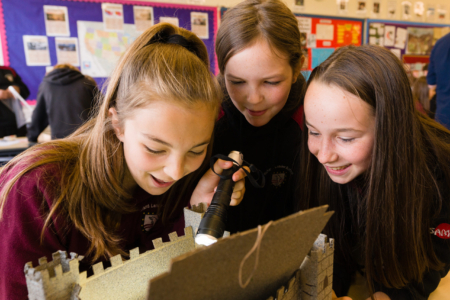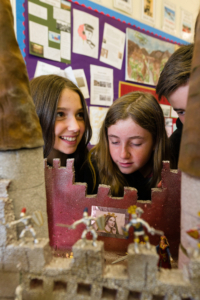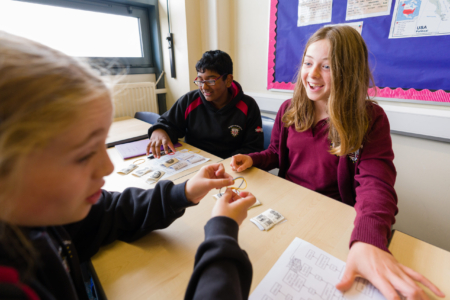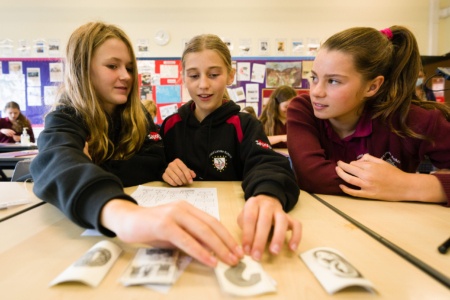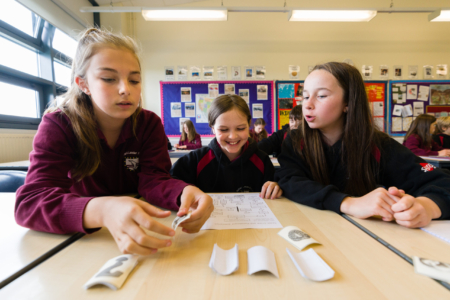History
The study of History will fire students’ curiosity and imagination, moving and inspiring them with the dilemmas, choices and beliefs of people in the past. It helps students develop their own identity through an understanding of history at personal, local, national and international levels. It helps them to ask and answer questions of the present by engaging with the past. They will develop a chronological overview that enables them to make connections within and across different periods and societies. We aim to inspire students and develop skills that enable to think critically about the world around them.
At times our study will focus on a chronological overview, at times a thematic focus and at times an in depth analysis. As a result, students will gain a greater understanding of the wider impact and value of History both as an academic discipline and as preparation for becoming more tolerant and responsible citizens.
Beyond the curriculum, students will have a variety of learning opportunities ranging from local fieldwork visits to Bodmin Gaol. Pendennis Castle and Restormel Castle to an international study visit to Berlin/Munich. In addition, we have good links with The Royal Cornwall Museum and Record Office, which offers enrichment workshops for students.
We also encourage students to take part in local and national History competitions and to develop in leadership roles within school based History activities such as being a History Subject Leader.
There are a number of key concepts that underpin the successful study of History at Key Stage 3. As students gain greater understanding of these concepts, they will begin to deepen and broaden their knowledge, skills and wider understanding of the subject. These key concepts are:
- Chronological understanding
- Cultural, ethnic and religious diversity
- Change and continuity
- Cause and consequence
- Significance of events
- Forming interpretations
Year 7 – Students will learn about the Anglo Saxons, the Norman Conquest and power in the Middle Ages, Everyday life in the Middle Ages, power struggles in medieval England – Thomas Becket, King John and Magna Carta, the Medieval Church and the Peasant’s Revolt – and life in Medieval England including food, work and disease.
The Tudor Monarchy, reformation and religious change, along with life in the Tudor period with a comparison with the Middle Ages.
Year 8 – Students will study the English Civil War, African Kingdoms including Mali, the Transatlantic slave trade and the abolition of slavery including a focus on the actions of black and previously enslaved people.
The Industrial Revolution and the changing nature of society including everyday life, inventions and protest.
Students will carry out investigations into Whitechapel in the C19th and Cornwall during the Industrial Age.
Britain at the start of the C20th, Suffragettes, the Russian Revolution, causes of WW1 and life in the Trenches
Year 9 -The changing nature of society in Britain in the C20th including multiculturalism, legalisation of homosexuality and the changing rights of women. The aftermath of WW1 and cause of WW2. The rise of Hitler and life in Nazi Germany including the Holocaust.
Life in Britain during WW2, the most significant events of WW2 Dunkirk, Stalingrad, Pearl Harbour, D-Day and the dropping of the atomic bombs on Hiroshima and Nagasaki.
The aftermath of WW2 and the beginning of the Cold War, Cold War events such as the Berlin blockade and airlift, Berlin Wall, Cuban Missile Crisis and Bay of Pigs.
Students will carry out an investigation into the significance of the war in Vietnam.
If you have any questions regarding the History curriculum please contact:
The History GCSE is a very popular option at Key Stage 4 and students will follow the Edexcel History GCSE course. The course structure comprises of four units and three exam papers. Across Year 10 and Year 11 students will cover the following material:
- Paper 1: Crime and Punishment from 1000AD to the present day This is a breadth study which includes a section on the historic environment (Whitechapel and the Jack the Ripper murders). This is 30% of the overall GCSE
- Paper 2: The Cold War 1941-1991 and Early Elizabethan England 1558-1588. This is 40% of the overall GCSE
- Paper 3: Weimar and Nazi Germany 1918-1939. This is 30% of the overall GCSE.
If you have any questions regarding the History curriculum please contact:
